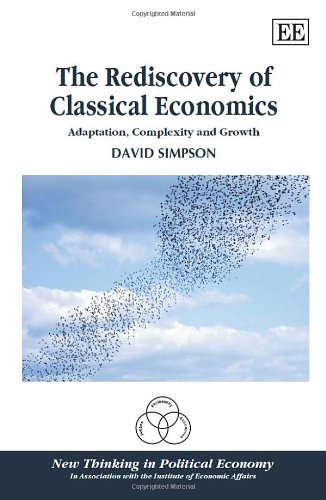

Most ebook files are in PDF format, so you can easily read them using various software such as Foxit Reader or directly on the Google Chrome browser.
Some ebook files are released by publishers in other formats such as .awz, .mobi, .epub, .fb2, etc. You may need to install specific software to read these formats on mobile/PC, such as Calibre.
Please read the tutorial at this link: https://ebookbell.com/faq
We offer FREE conversion to the popular formats you request; however, this may take some time. Therefore, right after payment, please email us, and we will try to provide the service as quickly as possible.
For some exceptional file formats or broken links (if any), please refrain from opening any disputes. Instead, email us first, and we will try to assist within a maximum of 6 hours.
EbookBell Team

0.0
0 reviews'David Simpson writes about key economic issues with admirable lucidity. He draws deeply on experience as well as on his knowledge of economic theory.'
- Asa Briggs
David Simpson skilfully argues that a market economy can be best understood as a human complex system, a perspective that represents a continuation of the classical tradition in economic thought. In the classical tradition, growth rather than allocative efficiency is the principal object of enquiry, economic phenomena are recognised to be elements of processes rather than structures, and change is evolutionary.
The book shows the common principles that connect the early classical school, the Austrian school and complexity theory in a single line of thought. It goes on to show how these principles can be applied to explain the characteristic features of a market economy - namely incessant change, growth, the business cycle and the market process itself - and argues that static equilibrium theory, whether neoclassical or neo-Keynesian, cannot satisfactorily account for these phenomena.
This fascinating book will provide a stimulating read for academics, postgraduate students and all those with an interest in economic theory and economic policy.
Contents: Preface 1. Introduction 2. Human Behaviour 3. Qualitative Change and Quantitative Growth 4. Adaptation, Emergence and Evolution 5. Self-organisation and Complexity 6. Markets, Competition and Entrepreneurship 7. Specialisation and Growth 8. Prosperity and Recession 9. Government 10. The Rediscovery of Classical Economics Bibliography Index